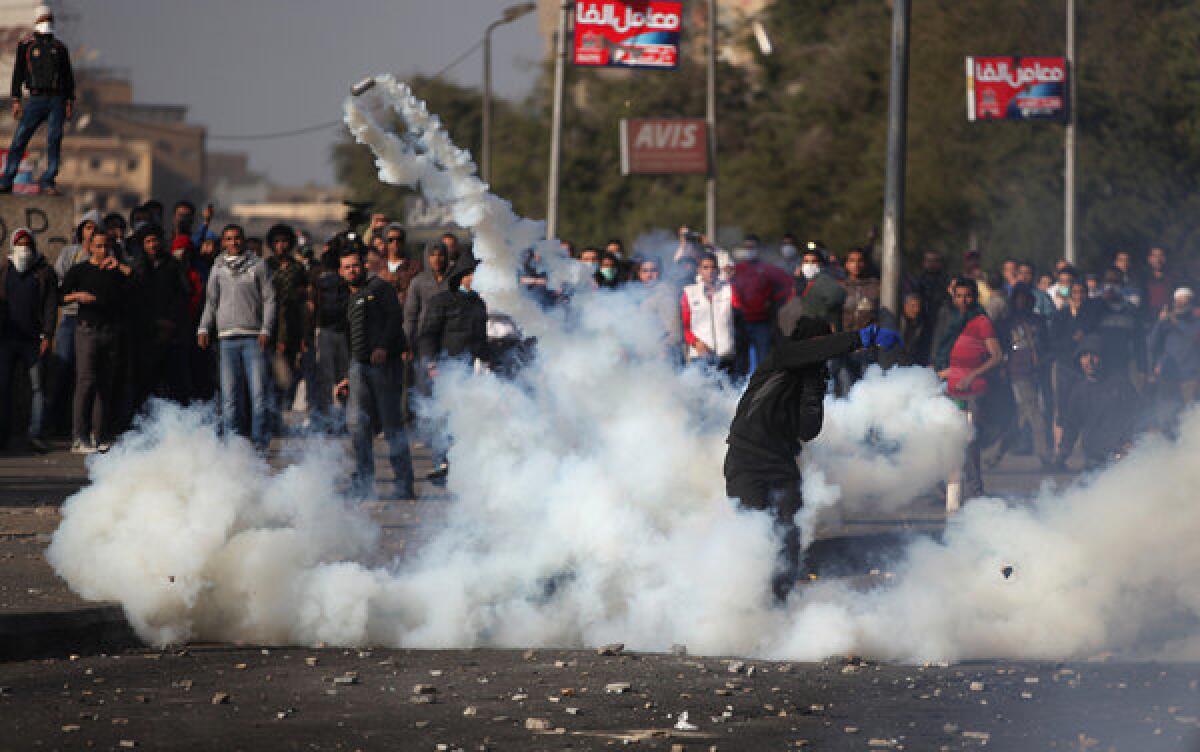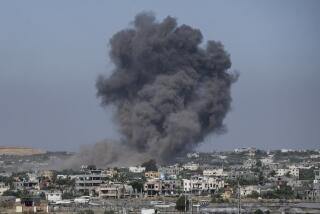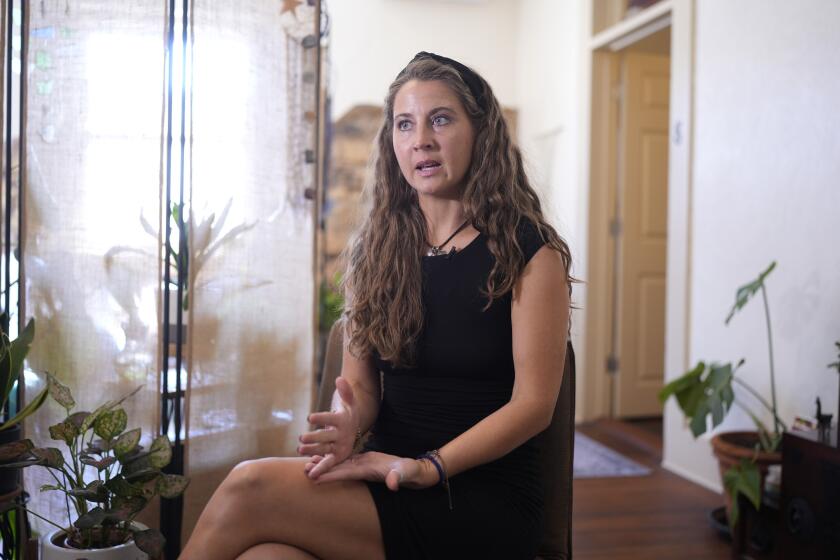Egyptian general warns against continued unrest

CAIRO — Egypt’s top military commander warned President Mohamed Morsi and opposition parties Tuesday to end days of bloodshed and unrest before the nation slides into chaos that may jeopardize the economy and “lead to the collapse of the state.”
The ominous statement from Gen. Abdel Fattah Sisi signaled that the military, which ruled Egypt for months before Morsi was elected in June, wanted to quickly stem an uprising against the Islamist-led government. At least 52 people have died in riots since Friday.
“The continuing conflict between political forces and their differences concerning the management of the country could lead to a collapse of the state and threaten future generations,” Sisi said on the army’s Facebook page. He added that political turmoil and attacks on state targets were a “real threat to the security of Egypt.”
Despite its much criticized rule, marked by political repression and human rights violations, the military is largely revered. It is regarded by many Egyptians as the single stabilizing force across a spectrum of failed institutions and Morsi’s authoritarian moves to consolidate the Muslim Brotherhood’s grip on power.
It did not appear the army was preparing to seize control of the country. The generals’ tenure running the government after the February 2011 toppling of Hosni Mubarak left them bitter and tainted the military’s reputation, especially after crackdowns on demonstrators. The army prefers playing behind-the-scenes power broker.
The statement, though, suggested the military was losing patience with protesters and questioning Morsi’s ability to contain the crisis. The army has been loyal to the president; Morsi supported a new constitution that gives the generals wide autonomy. But the Islamist president has been unable to sway protesters or the opposition away from conflict.
The military did not clarify how it “might interfere in coming days,” said Talaat Mosallam, a retired major general and security analyst. “Their experience before in politics was not a comfortable one. But their feeling that the political powers might be losing control compelled them to issue a statement.”
Troops have been deployed and given emergency arrest powers to guard public buildings and shipping docks in the vital coastal cities of Suez, Port Said and Ismailia. Ports in those towns serve the Suez Canal, whose stability is a potent economic symbol for foreign capitals and investors.
Violence and protests eased a bit on Tuesday. However, clashes between rock-throwing youths and police rumbled at the edges of Tahrir Square in Cairo. Unrest continued in Suez and Port Said, where protesters defied curfews and the government had lost control amid burned police stations and well-armed residents.
The main opposition coalition, the National Salvation Front, has rejected Morsi’s call for political talks. The organization, headed by reformers, including Nobel Peace Prize laureate Mohamed ElBaradei, has accused the president and the Muslim Brotherhood of hijacking the revolution that overthrew Mubarak.
But the opposition’s influence on the streets is questionable. Many protesters criticize it as disorganized, divided and unable to articulate a galvanizing message. The opposition epitomizes a major shortcoming of the revolution: the absence of a charismatic figure capable of bridging political differences and fixing the economy.
The military’s statement highlighted the failure of the Interior Ministry, which controls the nation’s police forces, to keep order. The ministry backed Mubarak’s 30 years of repressive rule and lacks the reforms to gain the confidence of Egyptians. It is mistrusted by the Muslim Brotherhood, whose members for decades were persecuted and tortured by police.
The unrest has been further complicated by disparate interests converging around a protest movement. Peaceful demonstrations have often been overshadowed by young men and boys hurling stones and firebombs at police. Soccer fans, known as Ultras, have acted as shock troops. Looters and gunmen roam cities.
More recently an anarchist group calling itself the Black Bloc has battled security forces along barricades leading to the parliament. The country’s general prosecutor Tuesday called it a terrorist organization after the ransacking of the lobby in the Intercontinental Hotel near Tahrir Square. The Black Bloc denied it was involved.
Frightened hotel workers sent out tweets, including one that read: “SOS If anyone knows anyone in #Military #Police #Government, please send help! Thugs in Lobby.”
Hesham Abdel-Wahab, a hotel security guard, told the Ahram Online news website: “We called the police and requested they send forces. But when I spoke to the police, they just continued to ask me for my name. They were very hesitant. I kept saying to them that my name doesn’t matter, we were under attack.”
ALSO:
Russian skywalkers look upward for escape
Bodies found in Mexico may be those of missing band
Controversial Spanish doctor testifies in huge sports doping trial
Special correspondent Reem Abdellatif contributed to this report.
More to Read
Sign up for Essential California
The most important California stories and recommendations in your inbox every morning.
You may occasionally receive promotional content from the Los Angeles Times.











